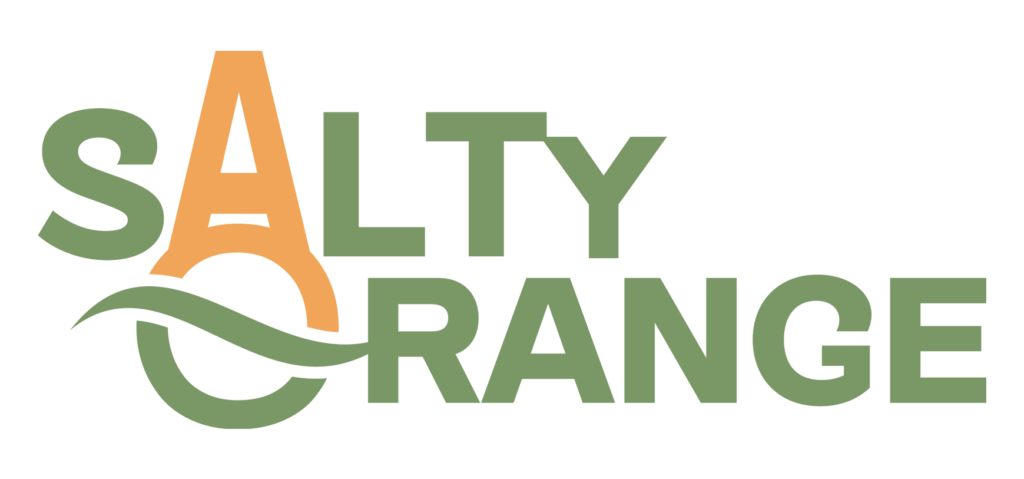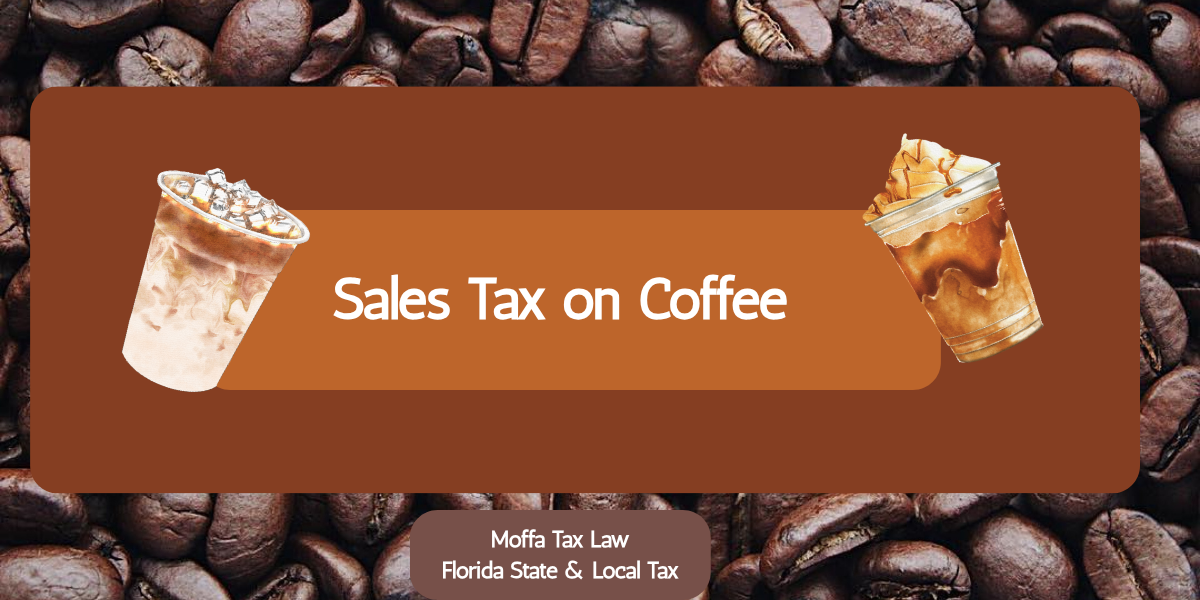NEWS & INSIGHTS


Is Bottled Coffee Subject to Florida Sales Tax? The Answer May Surprise You
If your business sells bottled or canned coffee beverages in Florida, you may want to revisit your product list. A new Technical Assistance Advisement (TAA 24A-020), issued on December 17, 2024, provides detailed guidance on which coffee drinks are exempt from sales tax—and which are not.
The Florida Department of Revenue reviewed over 40 popular coffee beverages, including brands like Starbucks, Dunkin’, Monster Java, and La Colombe. While most of these beverages were deemed exempt as “food products,” the Department ruled that Coca-Cola with Coffee in multiple flavors is taxable as a soft drink under Florida law.
🚫 Not All Coffee Is Tax-Free: Florida’s Legal Framework
Under section 212.08(1)(b), Florida Statutes, food products like “coffee, coffee substitutes, or cocoa” are exempt from sales tax—even when sold in cans or bottles. However, that exemption doesn’t apply if the drink falls under the definition of a “soft drink,” as explained in section 212.08(1)(c) and Rule 12A-1.011(5), F.A.C.
A “soft drink” is any nonalcoholic beverage—carbonated or not—that contains natural or artificial sweeteners but does not contain milk or milk substitutes. This nuance means some coffee drinks are reclassified as taxable depending on ingredients and processing.
✅ Exempt Coffee Drinks
The Department confirmed that the following canned and bottled coffee drinks are exempt from sales tax:
- Starbucks Doubleshot and Frappuccino
- Black Rifle Coffee Company
- Dunkin’ Iced Coffee
- La Colombe Draft Latte
- Monster Java
- International Delight Iced Coffee
- Chobani Cold Brew
- Oatly Cold Brew Latte
- Super Coffee and other protein-based lattes
These products were found to fall squarely under the coffee exemption, either because they include milk products or because they are plainly marketed and formulated as coffee rather than soda alternatives.
❌ Taxable Coffee Drinks: Coke with Coffee
On the other hand, four flavors of Coca-Cola with Coffee—Original, Caramel, Mocha, and Vanilla—were classified as taxable soft drinks. Why? Despite containing coffee, these beverages are primarily soda-based, carbonated, and formulated like a cola rather than a coffee drink.
According to the Department, Coke with Coffee’s ingredients and branding align more with a soft drink than a food product, triggering Florida sales tax under section 212.08(1)(c).
🧠 What This Means for Retailers and Distributors
If you sell bottled beverages in Florida, this ruling highlights the importance of ingredient-level scrutiny. Just because a drink contains coffee doesn’t mean it’s exempt from tax. You’ll need to examine not only the ingredient list but also the drink’s formulation and marketing to ensure proper tax classification.
Takeaway: If a product resembles soda—carbonated, sweetened, and without milk—it may be taxable even if “coffee” is the first word on the label.
📊 Why This TAA Matters
TAA 24A-020 serves as an important clarification for vendors, restaurants, and distributors alike. It confirms that Florida continues to apply the “food product” exemption broadly but draws a hard line when products enter soft drink territory—even if they include coffee or caffeine.
It’s also a reminder that relying solely on ingredient order is risky. Instead, evaluate each product as a whole—packaging, formulation, and labeling all matter under Florida law.
⚖️ Citations
- Fla. Stat. § 212.08(1)(b), (c)
- Rule 12A-1.011(5), F.A.C.
- Florida Department of Revenue, Technical Assistance Advisement No. 24A-020 (Dec. 17, 2024)
© 2025 Jeanette Moffa. All Rights Reserved.
No. While most are exempt, some—like Coca-Cola with Coffee—are classified as taxable soft drinks.
Drinks that resemble soft drinks (sweetened, carbonated, and non-dairy) can be taxed even if they contain coffee.
Under Rule 12A-1.011(5), a soft drink is a nonalcoholic beverage that is sweetened and does not contain milk or milk substitutes.
Yes. Carbonation is a factor that may lead to classification as a soft drink, especially when combined with sweeteners and no milk.
No. Starbucks Doubleshot and Frappuccino bottled drinks are considered exempt food products under Florida law.
No. These are considered exempt because they include milk-based ingredients and are marketed as coffee drinks.
Check the full ingredient list, look for milk/milk substitutes, and evaluate whether the beverage is similar to soda.
Sugar-free alone doesn’t determine taxability. If the drink lacks milk and resembles soda, it could still be taxable.
Yes. This TAA reflects the Department’s statewide interpretation of Florida’s sales tax law.
Review your beverage offerings and consult with a Florida tax professional to ensure compliance with current guidance.
Share
Additional Articles by the SALTy Orange at Moffa Tax Law:
NEWS & INSIGHTS State Conformity with the BBA Partnership Audit Rules: Where Are We in 2025? State Conformity with the…
How Florida’s Sales Tax Auditors Target Convenience Stores (and What You Can Do About It)”
NEWS & INSIGHTS How Florida’s Sales Tax Auditors Target Convenience Stores (and What You Can Do About It) Florida Department…
NEWS & INSIGHTS Florida Sales Tax Guide for Convenience Stores: What Every C-Store Owner Must Know Convenience stores are a…

Jeanette Moffa, Esq.
(954) 800-4138
JeanetteMoffa@MoffaTaxLaw.com
Jeanette Moffa is a Partner in the Fort Lauderdale office of Moffa, Sutton, & Donnini. She focuses her practice in Florida state and local tax. Jeanette provides SALT planning and consulting as part of her practice, addressing issues such as nexus and taxability, including exemptions, inclusions, and exclusions of transactions from the tax base. In addition, she handles tax controversy, working with state and local agencies in resolution of assessment and refund cases. She also litigates state and local tax and administrative law issues.


